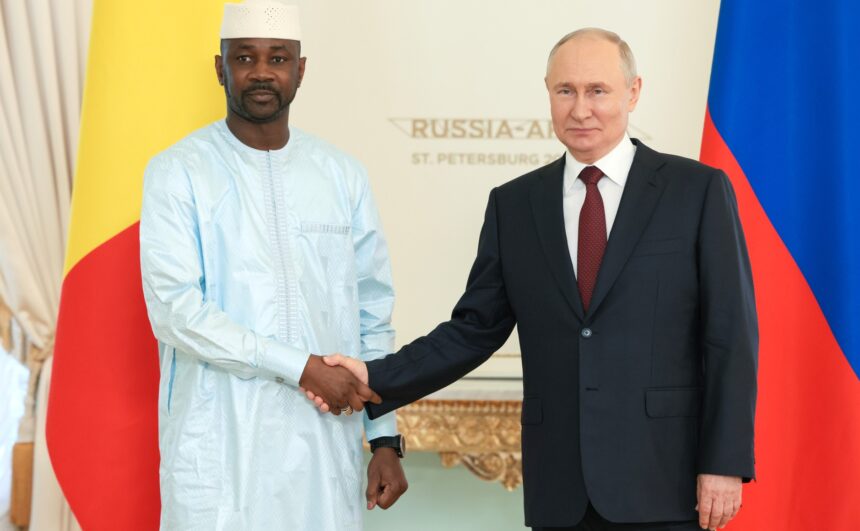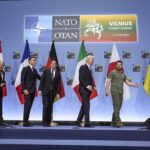Mali and Russia have signed a series of new agreements aimed at boosting bilateral trade and reinforcing economic cooperation, with a significant emphasis on nuclear energy, according to information released by the Kremlin.
The deals were announced during an official visit by Mali’s transitional president, Colonel Assimi Goïta, to Moscow, where he held a two-hour meeting with Russian President Vladimir Putin, as reported by Russian state media.
Since seizing power in 2021, Col Goïta has significantly strengthened ties with Russia while distancing Mali from its former colonial ruler, France. This diplomatic shift mirrors a broader realignment in the region, with neighbouring countries like Burkina Faso and Niger also pivoting toward Russia following the ousting of civilian governments.
During the talks, President Putin acknowledged that trade between Russia and Mali remains “modest” but pointed to a growing upward trend. He outlined potential future areas of cooperation including “geological exploration, energy, logistics, and the humanitarian field,” highlighting the strategic importance of the agreements.
Among the notable deals is a renewed commitment to deepen collaboration in the field of nuclear energy. Russia and Mali have previously discussed building a Russian-designed nuclear power plant to support Mali’s long-term energy needs—a project that is now gaining renewed momentum under the new accords.
Col Goïta praised the warm reception from the Russian side and expressed optimism about the growing partnership. “This official visit will contribute to further deepening our relationship in a spirit of mutual trust and respect for sovereignty,” he stated, according to a release from the Malian presidency. He reaffirmed Mali’s determination to expand cooperation across “many sectors.”
Military cooperation continues to be a cornerstone of the alliance between the two nations. Russian mercenary groups have provided military support to Col Goïta’s government following the withdrawal of French forces and the UN peacekeeping mission. Although the Wagner Group has recently exited Mali, another Russian military entity, known as the Africa Corps, remains active in the country.
When the Malian military took control, they cited the worsening security situation as a primary justification for the coup. However, violence and instability have persisted and, in some areas, intensified, despite earlier assurances of improved security.
Russia’s newly appointed Defence Minister, Andrei Belousov, also met separately with Mali’s Defence Minister, Sadio Camara. Belousov underscored the importance of delivering concrete outcomes in the realm of defense. “The priority of the Russia-Mali partnership is to achieve practical results in enhancing security and sovereignty,” he said, according to a statement carried by AFP. “This approach is the key to any success and victory.”






